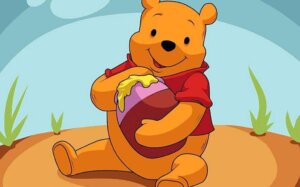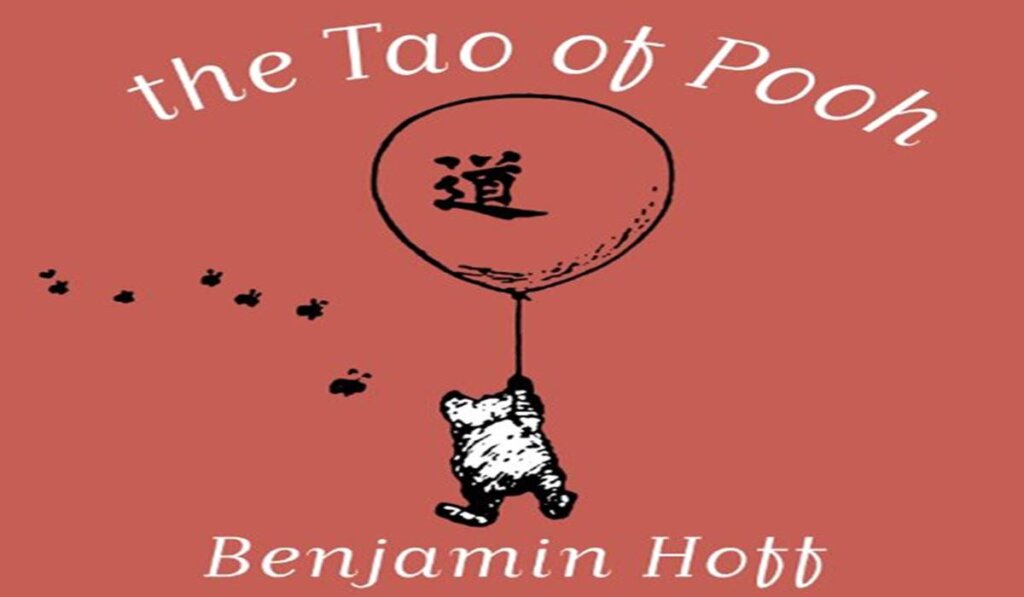The Tao of Pooh: How to Live Well According to Winnie the Pooh and Taoism


Written and verified by the psychologist Valeria Sabater
Benjamin Hoff, an expert on Asian culture, wrote The Tao of Pooh (1982) at night while working as a tree trimmer in the Portland Japanese Garden. Little did he know that this original book would be a New York Times bestseller for 49 weeks in a row. Indeed, it was a complete success and, even today, some 40 years later, it continues to be seen as almost a cult manual.
It sounds like a book aimed at children, but it’s for adults. It puts forward an attractive proposal, the teachings of Taoism told via the characters of the Winnie the Pooh stories. In fact, Pooh embodies the Taoist principle of ‘non-action’ or simply being.
Meanwhile, the supporting characters from the famous Hundred Acre Wood, such as Eeyore, Owl, Piglet, and Tigger symbolize the very human tendency to complicate the simplest of things. The author’s aim was none other than to convey a more elementary, simpler, and also happier way of life. One that was based on Taoism.
“In other words, everything has its own place and function. That applies to people, although many don’t seem to realize it, stuck as they are in the wrong job, the wrong marriage or the wrong house.”
–Benjamin Hoff, The Tao of Pooh-

The Tao of Pooh Lessons
Benjamin Hoff’s, The Tao of Pooh seeks to encourage the valuable exercise of self-reflection. It’s interesting that, as early as the 1980s, the author considered the necessity of developing this competence. Today, in the 21st century, it’s even more necessary as the arrival of new technologies, social media, and multitasking has weakened this psychological value.
Nowadays, you barely have time to think and reflect on your feelings, thoughts, and way of life. The rush, the worry, the weight of uncertainty, and a reality dominated by cellphone messages prevent you from thinking about yourself.
Perhaps going back to the simple things like walking through the woods with iconic characters such as Winnie the Pooh could help. You may well discover some really basic lessons about happiness, peace, and personal fulfillment.
Indeed, combining the philosophy of Taoism with the classic adventures created by Alan Alexander Milne was an original proposal that’s well worth recovering today.
Live the Pooh way, without trying to control everything
Winnie the Pooh exhibits a lifestyle that harmonizes with the ‘wu wei’ principle. In other words, nothing is more important than letting yourself go and accepting what you can’t control. The classic message of “Be water, my friend” and the ‘non-action’ that Bruce Lee proposed, demonstrate one of the most basic principles of Taoism.
This classic character of the Hundred Acre Wood may seem dim, lazy, and carefree. However, nobody knows how to enjoy the here and now as much as he does. In fact, the friendly bear delights like no other in the simplicity of everyday life and nature.
“Do you want to be really happy? You can begin by being appreciative of who you are and what you’ve got. Do you want to be really miserable? You can begin by being discontented.”
– Benjamin Hoff, The Tao of Pooh
Relax, you’re not wasting your time
We live in a society dominated by haste. We don’t know how to rest and, if we do, we feel guilty because we’re not being productive. The Tao of Pooh illustrates, in a simple way, that time isn’t ever wasted. In fact, as long as we’re alive, every second is valuable.
However, we must know how to invest our time properly. There’s a simple way to do this. By limiting ourselves to simply being. Nothing more. So relax and stop living in a hurry; slowing down means allowing yourself to enjoy who you are and what’s surrounding you.
The Tao of Pooh: fill your mind with things that really matter
Fears, anxieties, worries… The Tao of Pooh speaks of the ‘snowball’ phenomenon. It occurs when you have thoughts of negative valence. Once you start, the process only gets worse. What at first was just a tiny speck of concern eventually turns into a huge rush of anxiety.
You need to know how to focus your mind on more valid and significant aspects of life. Fill your mental universe with what excites you, what has value for you, and what gives you hope and purpose.
“A fly can’t bird, but a bird can fly. Very simple. It’s obvious, isn’t it? And yet you’d be surprised how many people violate this simple principle every day of their lives and try to fit square pegs into round holes ignoring the clear reality that Things Are As They Are”.
– Benjamin Hoff, The Tao of Pooh-
You’re unique and exceptional, don’t compare yourself to others
In a present dominated by the tyranny of ‘likes’ and constant comparison on social media, you might’ve almost forgotten how wonderful it is to be yourself. So many of us envy what others have or what they’ve achieved. Teenagers dream of having the body or the life of the public influencers they admire… All of this makes us sick and distances us from our real selves.
The Tao of Pooh reminds us how magical it is to be unique and different from each other. Everyone has their own style, skills, and particularities. It’s that variability that makes us all so special.

The feeling of emptiness isn’t dangerous
The feeling of emptiness is often difficult to handle. When you perceive it within you, you tend to try and cover it up in a thousand different ways: buying things, eating unhealthily, or starting unsatisfactory relationships.
This isn’t the right way to behave. As a matter of fact, Benjamin Hoff claimed that the feeling of emptiness is a wake-up call that should encourage us to change. It’s a moment of confusion that should impel us to search for what gives us meaning.
Finally, as you can see, the Tao of Pooh remains a highly inspiring legacy of wisdom. You shouldn’t hesitate in learning from this simple legacy that’s relevant, whatever age you may be.
All cited sources were thoroughly reviewed by our team to ensure their quality, reliability, currency, and validity. The bibliography of this article was considered reliable and of academic or scientific accuracy.
- Hoff, Benjamin (1983) Tao de Pooh. Tutleblack Book
- Hoff, Benjamin (1981) Way to life: at the heart of the tao the ching. New Holland Publishers.
This text is provided for informational purposes only and does not replace consultation with a professional. If in doubt, consult your specialist.








